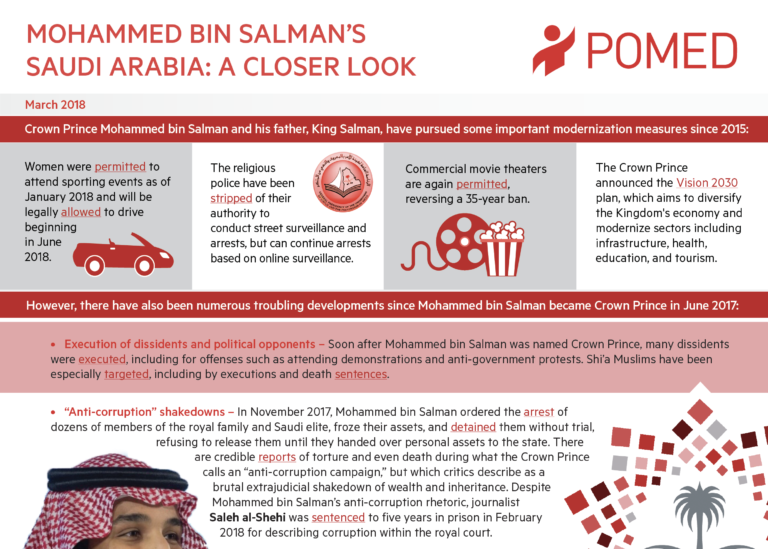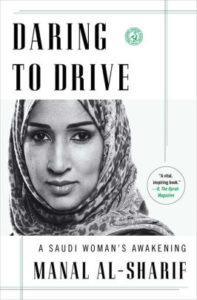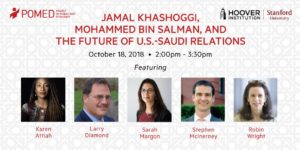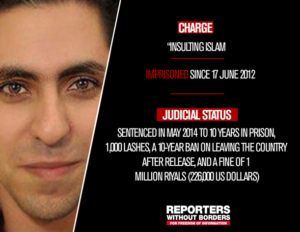
FIFA’s decision to award the hosting of the Club World Cup football tournament in December 2023 to Saudi Arabia is the latest coup for the House of Saud, Forbes reports:
 “FIFA has yet again disregarded Saudi Arabia’s atrocious human rights record,” said Amnesty International’s Head of Economic and Social Justice Steve Cockburn. “Hard on the heels of awarding the Visit Saudi tourism site as a sponsor of the Women’s World Cup, it has announced the Kingdom as host of the Club World Cup without any consideration of freedom of expression, discrimination or workers’ rights. FIFA is once again discarding its own human rights policy and is complicit in blatant sports washing.”
“FIFA has yet again disregarded Saudi Arabia’s atrocious human rights record,” said Amnesty International’s Head of Economic and Social Justice Steve Cockburn. “Hard on the heels of awarding the Visit Saudi tourism site as a sponsor of the Women’s World Cup, it has announced the Kingdom as host of the Club World Cup without any consideration of freedom of expression, discrimination or workers’ rights. FIFA is once again discarding its own human rights policy and is complicit in blatant sports washing.”
Saudi Arabia is among the most influential authoritarian states that are seeking to reshape the international order, says the National Endowment for Democracy (NED). These regimes may disagree on many things, but they share the objective of obstructing the advance of democracy and weakening the influence of democratic principles in the world.
The idea that Saudi Arabia will seek atomic weapons remains a concern. In 2018, Crown Prince Mohammed bin Salman said his country could develop nuclear weapons as a response to Iran’s nuclear program. The regime is likely to gain support from both democracies and autocracies in its efforts to become a nuclear power, Global Finance reports.
 “Equipped with robust bilateral relationships with relevant countries and the funds to bring in foreign partners, Saudi Arabia is likely to advance its nuclear game plan with the support of external players,” says Bayly Winder, a Penn Kemble Fellow at the nonprofit National Endowment for Democracy (NED). “Saudi Arabia initiated a bidding process for its first nuclear power station with interested parties including South Korea, China, Russia and France. The Saudi and American governments are also working on a partnership framework for clean-energy development.”
“Equipped with robust bilateral relationships with relevant countries and the funds to bring in foreign partners, Saudi Arabia is likely to advance its nuclear game plan with the support of external players,” says Bayly Winder, a Penn Kemble Fellow at the nonprofit National Endowment for Democracy (NED). “Saudi Arabia initiated a bidding process for its first nuclear power station with interested parties including South Korea, China, Russia and France. The Saudi and American governments are also working on a partnership framework for clean-energy development.”
“The risk of regional escalation will continue to exist, but the Saudis are well aware of the sensitivities involved in nuclear energy buildup,” adds Winder.
 Saudi Arabia is hardly the first state to brandish sportswashing as a form of reputation-laundering, notes Sarath K. Ganji, a former U.S. Fulbright Scholar based in the Arabian Gulf.
Saudi Arabia is hardly the first state to brandish sportswashing as a form of reputation-laundering, notes Sarath K. Ganji, a former U.S. Fulbright Scholar based in the Arabian Gulf.
The Gulf state of Qatar has proven itself among sportswashing’s ablest practitioners, he writes for the Journal of Democracy. Democratic actors would do well to remember this as the World Cup comes and goes. Qatar’s laundering—and the example it sets for other authoritarian regimes—is certain to endure.
Democracies & autocracies will help #SaudiArabia as it strives “to advance its nuclear game plan with the support of external players,” including South Korea, China, Russia and France, Bayly Winder, a #PennKemble Fellow at the @NEDemocracy tells @GFmag. https://t.co/IlTRoTeIH8
— Democracy Digest (@demdigest) February 16, 2023







